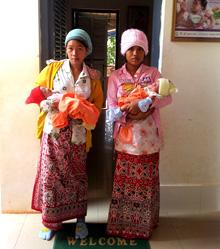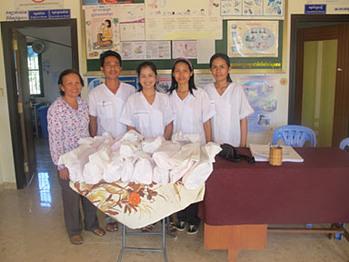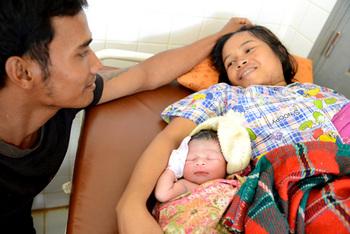Context
Cambodia has had great success in improving maternal and child health in line with the United Nations Millennium Development Goals (MDGs) for 2015. The maternal mortality rate fell from 472 deaths per 100,000 live births to 170 between 2005 and 2014. During the same period, the neonatal mortality rate fell from 28 to 18 deaths per 1,000 live births. Despite these achievements, the neonatal and maternal mortality rates are still very high by international and regional comparison.
Objective
Families with young children increasingly benefit from improved quality health services for mothers and children.
Approach
The focus of the project is on improving the quality of emergency services for mothers and children related to all areas of obstetric care and on enhancing the skills of health staff providing Emergency Obstetric and Newborn Care (EmONC). In addition, health services should be organised in such a way as to be as accessible to persons with disabilities as possible. Instruments for the early detection of disabilities in young children are also to be developed.
In four provinces in Cambodia, the project is supporting diagnostic, therapeutic and counselling skills among health staff who are responsible for EmONC. Specific training courses are improving the skills of midwives to manage complicated deliveries. Skills laboratories have been set up and equipped in provincial hospitals for this purpose.
These activities are being carried out primarily by the consulting company GFA in cooperation with the local non-governmental organisation RACHA and the Liverpool School of Tropical Medicine (LSTM). Other areas of collaboration with GFA and RACHA include improving of the quality of available EmONC services and awareness raising activities to foster a positive attitude within the population to maternal and newborn care.
The project is strengthening the methods and skills of health staff to adapt health services to the needs of persons with disabilities. This in turn helps to increase knowledge levels and self-help capacities among persons with disabilities with regard to sexual and reproductive health and rights. Instruments for the early detection of impairments or disabilities in young children, associated training materials and a database of service providers have been developed and provided to the Ministry of Health so that they can be officially introduced.


